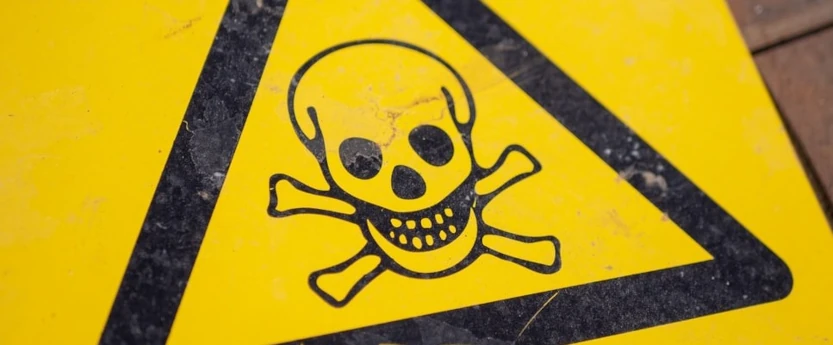Five Famous Product Liability Cases
What are the five most famous product liability cases of all time? Negretti & Associates has curated this list of product liability cases that have grabbed headlines, captivated the public’s attention, and continue to be remembered years after going to trial.
When you use a product, you put your trust in the company that produced that product. You expect the product to work as intended.
Unfortunately, sometimes products are simply defective, and serious injury may result. Perhaps the product wasn’t designed correctly, or there may have been a problem manufacturing it. Sometimes, manufacturers simply fail to provide adequate warning about how their products are to be used.
All of these outcomes fall under the umbrella term of product liability cases, or what are also called product defect cases.
Liebeck v. McDonald’s Restaurants, a.k.a. “The McDonald’s Hot Coffee Lawsuit”
Probably the single most famous and misunderstood product failure case involved one person suing McDonald’s over a spilled cup of scalding-hot coffee. The case was a media sensation, and was the subject of a documentary in 2011, aptly titled Hot Coffee.
On February 27, 1992, 79-year-old Stella Liebeck was sitting in the passenger seat of her 1989 Ford Probe with hot coffee on her lap, after going through a McDonald’s drive-through window. Her grandson was the driver of her car, which did not have cup holders.
While the car was parked, so that Ms. Liebeck could add cream and sugar to her coffee, Ms. Liebeck placed the coffee cup between her knees. As she removed the lid of the cup, Ms. Liebeck pulled the far side of the lid toward her. In the process, she spilled the entire cup of scalding-hot coffee on her lap. Ms. Liebeck was wearing sweatpants, which absorbed the coffee and kept it clinging to her skin.
Ms. Liebeck suffered third-degree burns on her pelvis and underwent skin grafting. She was hospitalized for eight days. She was partially disabled for two years after the incident, while she received medical attention for her burns. Her pelvis was left permanently disfigured.
Ms. Liebeck brought a claim against McDonald’s for failure to warn of the extremely overheated coffee that they were serving to customers.
Outcome: McDonald’s dragged out the case for years, and appealed the original verdict of $2.8 million dollars. Ms. Liebeck eventually settled for something significantly lower amount: $640,000.
The McDonald’s coffee lawsuit is easily one of the most famous product liability cases. Unfortunately, the plaintiff in that case, Stella Liebeck, was vilified unnecessarily; some called it a frivolous case. In this video, Jonathan Negretti sets the record straight on why this was a worthy lawsuit.
General Motors Faulty Ignition Switch Case
From 2000 through 2004, General Motors produced vehicles with faulty ignition switches, which would shut off engines while driving, thereby disabling airbags from inflating. The design defect led to at least 124 deaths and nearly 300 injuries.
However, the story doesn’t end there. An attorney in Georgia, Lance Cooper, discovered that GM committed fraud by covering up the ignition switch defect for more than 13 years. GM had secretly redesigned the switch without changing the part number to try to avoid being caught.
Outcome: GM agreed to pay more than $900 million dollars to settle cases related to deaths and injuries stemming from the faulty ignition switches. What’s more, the auto manufacturer recalled more than 30 million vehicles worldwide in 2014.
Takata Airbag Case
When you mention airbags, most people think about massive recall involving the Takata airbags. In 2014, Takata, one of the largest airbag manufacturers in the world, began notifying auto manufacturers of a defect that would result in millions of automobile recalls.
More than 40 million vehicles are said have Takata airbags. The company’s defective airbags have been linked to 16 deaths and hundreds of injuries over many years.
Takata manufactured faulty airbags dating back to the early 2000s. According to the National Highway Traffic Safety Administration, the airbags had defective inflators that can rupture on deployment, shooting metal fragments at vehicle occupants.
Shocking information has come to light regarding what the Japanese auto parts manufacturer knew about potential defects in its airbags more than decade before any recall was made.
According to two former Takata employees, in 2004 the company retrieved 50 airbags from scrapyards and conducted secret tests on them. In two of the tests, the steel inflators cracked, causing the parts to rupture. Engineers were so alarmed by the findings that they immediately began developing fixes in anticipation of a recall. However, no recall was made at the time. For Takata, the legal implications have been astounding.
Outcome: Takata has been ordered to pay $1 billion dollars to automakers and those injured due to its airbags. In 2017, Takata filed for Chapter 11 bankruptcy in the United States, and its surviving assets were purchased by its largest competitor.
Bullock v. Phillip Morris: Big Tobacco on Trial
In 2002, tobacco giant Phillip Morris was ordered to pay punitive damages of a staggering $28 billion to lung cancer sufferer Betty Bullock, 64, of Missouri. The jury in the case accepted Ms. Bullock’s claim that her tobacco addiction was caused by the company’s failure to warn her of the risks of smoking.
Ms. Bullock had started smoking in the 1950s when she was 17. She argued that Phillip Morris concealed the dangers of cigarettes with a widespread misinformation campaign that began in the 1950s.
Ms. Bullock, whose cancer had spread to her liver, was awarded $850,000 in compensatory damages and $28 billion in punitive damages. The case was appealed and eventually settled for $28 million, or one-tenth of a percent of the original jury award.
Bullock v. Phillip Morris was a watershed moment for the tobacco industry. It was the single largest verdict of an individual plaintiff in history.
Outcome: As a result of the verdict, individual lawsuits flooded the courts across the country. Attorneys general, representing each state, had already negotiated a master settlement agreement with four of the largest tobacco companies. The agreement effectively changed public policy and set aside billions of dollars dedicated to healthcare costs.
Dow Corning Silicone Breast Implants
In the late 1970s and into the 1990s, more than 170,000 women suffered rupture, leakage and illnesses associated with Dow Corning silicone breast implants.
Since its founding in 1943 as a joint venture between Dow Chemical and Corning Glass, Dow Corning grew to become one of the world’s leading manufacturers of silicone-based products. The company began producing silicone breast implants once there became a large demand for these products in the medical industry.
Evidence showed that Dow Corning personnel were aware of the risks associated with their silicone implants, and that they knew about the production problems with their products on the market.
The Food and Drug Administration introduced mandatory problem-reporting programs in the 1980s. This gave implant manufacturers the opportunity to recognize and analyze any complaints and potential problems associated with their products. As a result, there was no mandatory recalls or penalties for product defects before that time.
Dow Corning found itself deep in litigation concerning their products and raw materials. Its legal troubles grew to an international scale. In 1993, the company entered into an agreement with different plaintiffs who claimed they had suffered injuries from the defective silicone breast implant products.
In May of 1995, facing 20,000 lawsuits and 410,000 potential claims filed in the global settlement, Dow Corning filed a Chapter 11 reorganization with the U.S. Bankruptcy Court. The corporation also proceeded to seek further injunctions against the litigation for medical products they produced and distributed. Protection orders were requested against implant plaintiffs who had ongoing trials against related defendant corporations, in an effort to protect themselves from later lawsuits.
Eventually, a jury in Louisiana found that Dow Corning knowingly deceived women by hiding the health risks of silicone used in breast implants.
Outcome: Dow Corning entered into a $3.2 billion payout to settle claims made against them. Dow Chemical assumed full ownership of Dow Corning on June 1, 2016.
The Bottom Line
When corporations try to cover-up defects in their products and fail to warn users of the hazards of using their products, product liability lawyers are ready to stand up for those who have experienced damages, injuries, and loss of life.
If you believe that you’ve experienced injury or damages related to a product defect, reach out to Negretti & Associates for a free consultation with our legal team. Call us at (602) 531-3911 in Arizona, (619) 777-3370 in California, or (720) 636-3444 in Colorado. You can also contact us online or send us a text.



